And that’s a wrap for Milan Fashion Week. Italian brands delivered creativity while staying faithful to their roots. Fifty-six physical shows and seventy presentations were part of the events that highlighted Italian know-how, historic fashion houses, and their feminine, maximalist approach to clothing. Flawless tailoring was at the heart of the collections, while bold twists showcased their forward-thinking vision.
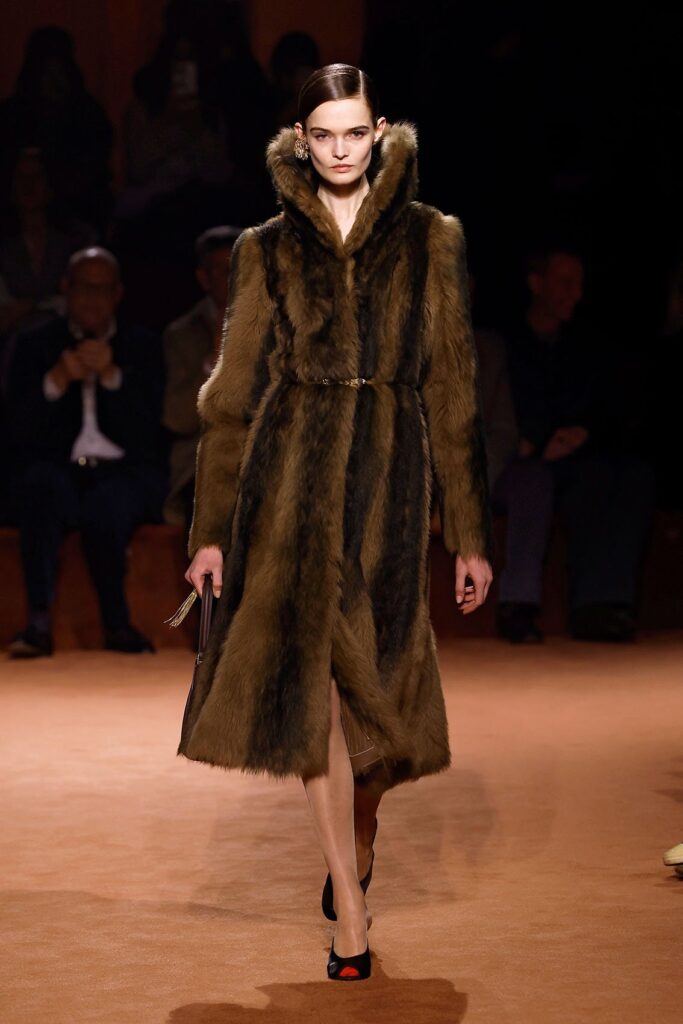
This was also a week of celebrations, with Dsquared turning 30 and Fendi turning 100! At Dsquared, a daring fashion show paid homage to the brand’s signature sensual appeal and provocative approach. Pop culture icons such as Naomi Campbell, Doechii, Irina Shayk, Alex Consani, Tyson Beckford, and more were part of the show, highlighting the brand’s role as a cultural player since its beginnings—especially during the Y2K era. At Fendi, the celebration took a more intimate turn. The show was presented at the house’s HQ in a setting reminiscent of the iconic salons where the five Fendi sisters used to play and work. The collection revisited the brand’s recognizable codes as a source of inspiration for the years ahead rather than as a nostalgic reflection.
If there’s something Italians know how to do, it’s merging structured classic tailoring with maximalism. This season, tailored suits and jackets blended with bold visual elements, creating a juxtaposition between timeless elegance and modern edge. Nodding to the Italian visual language, strong and colorful motifs played with the flawless construction of the garments. Seen in Versace, Philipp Plein, Ermanno Scervino, and Moschino, the collections sparked themes of creativity and heritage—two concepts ingrained in Italian fashion.
As part of this visual language, animal print appeared on tops, coats, jackets, suits, dresses, and pants, creating an edgy aesthetic and an interplay between classy and sensual. Dolce & Gabbana, Sportmax, Roberto Cavalli, and N°21 explored this print, crafting a bold yet sophisticated narrative where timeless glamour met contemporary attitude. Embracing opulence, these brands proved its versatility across silhouettes and styles.
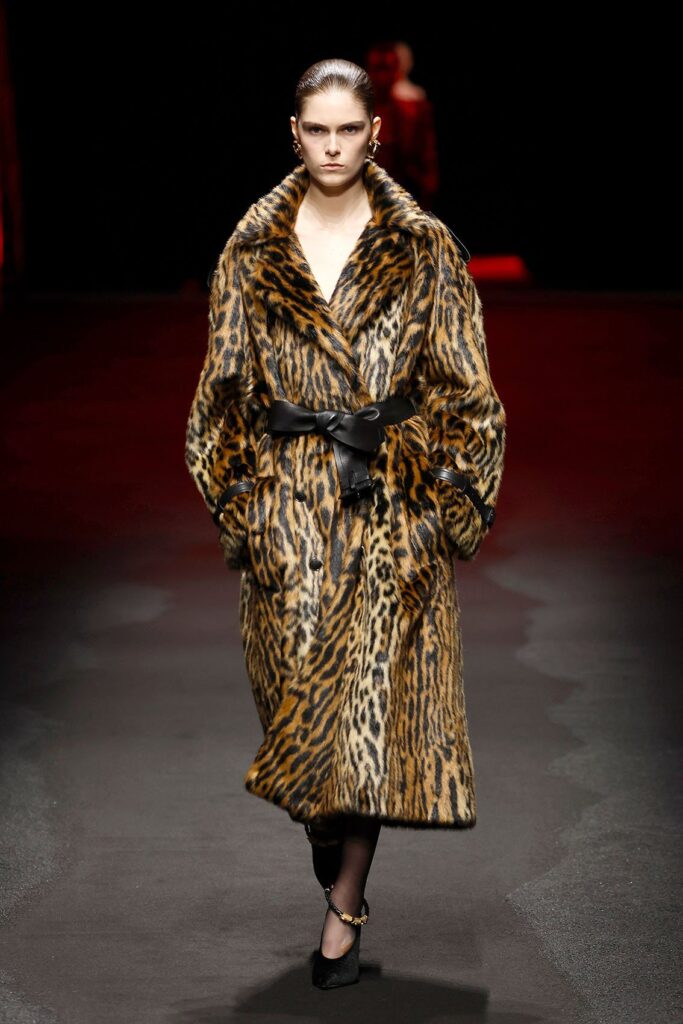
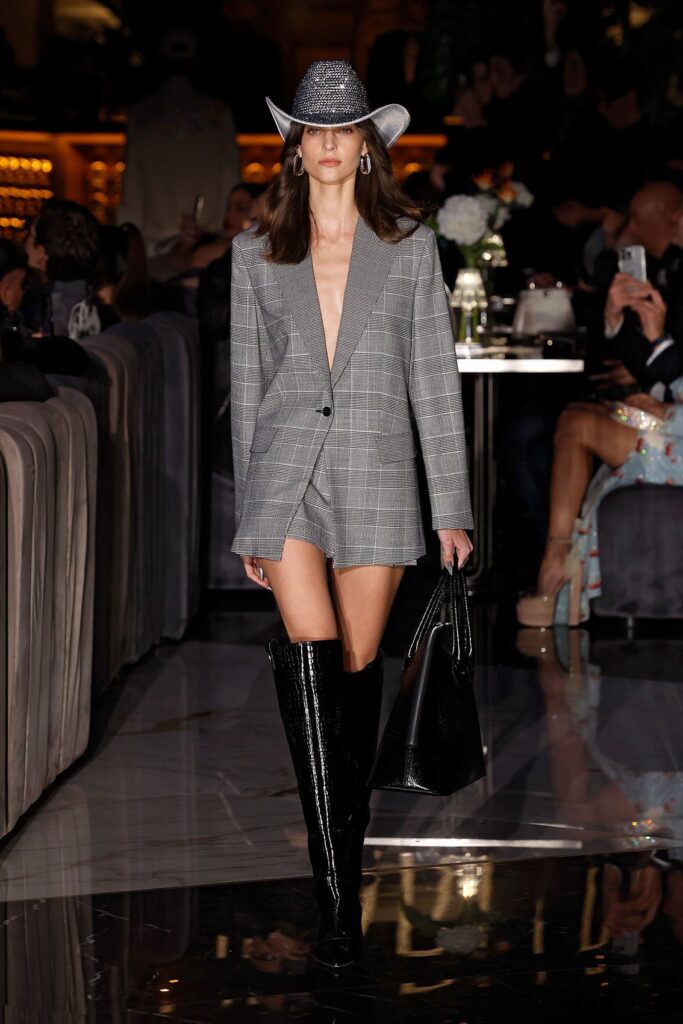
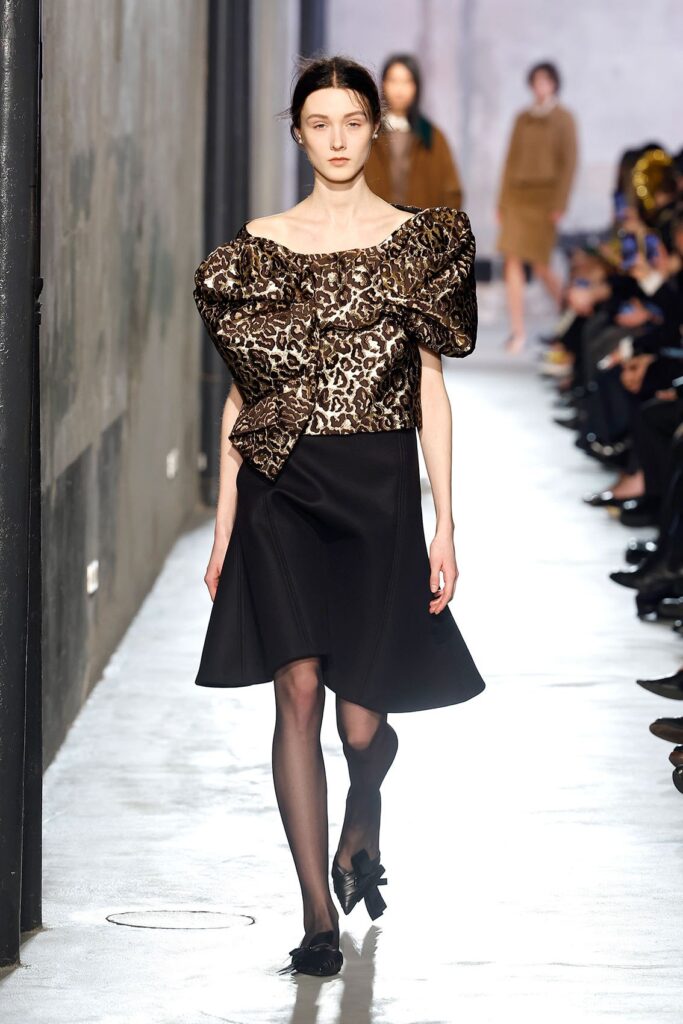
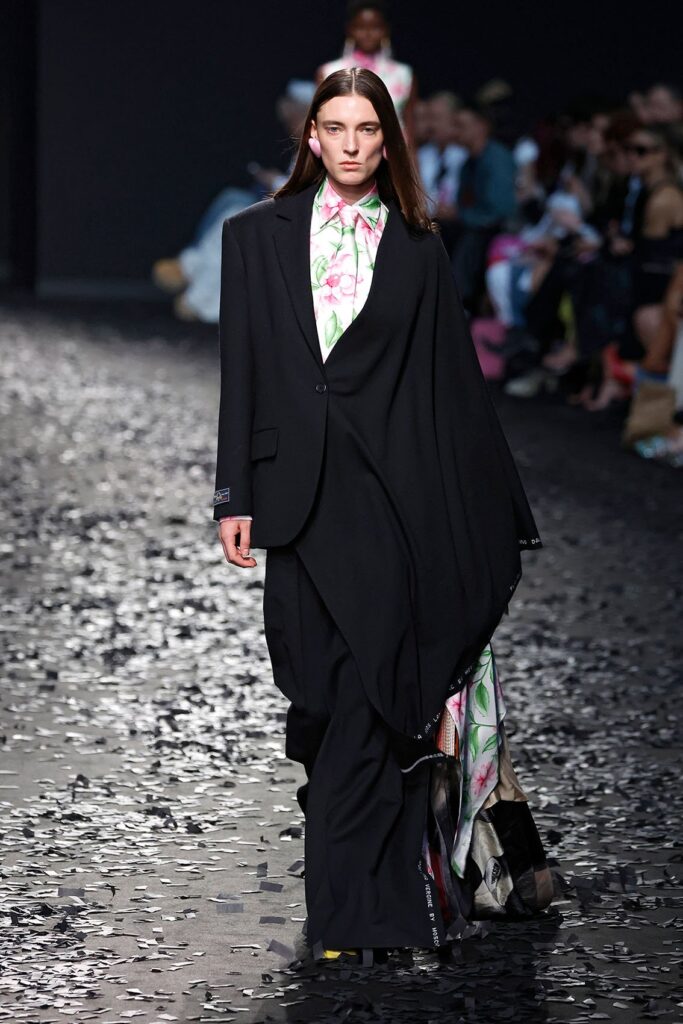
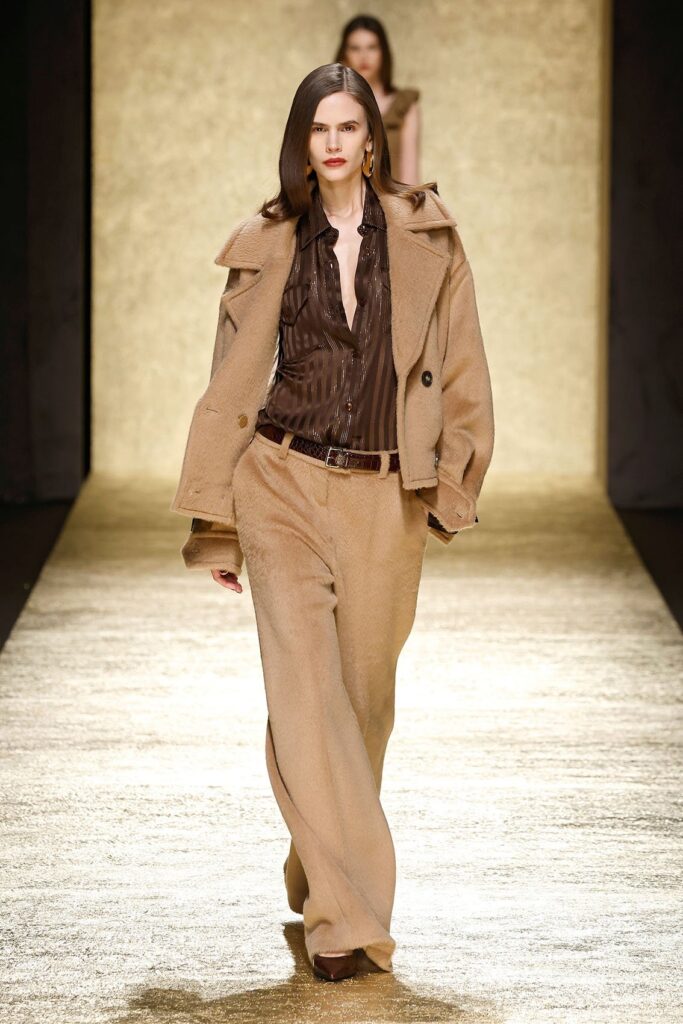
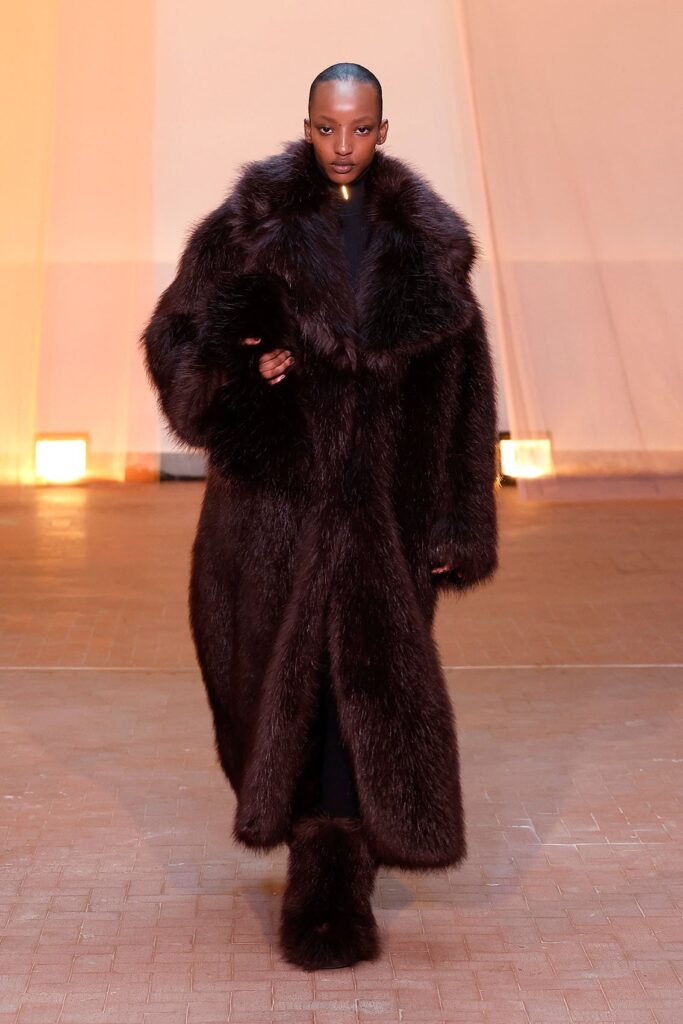
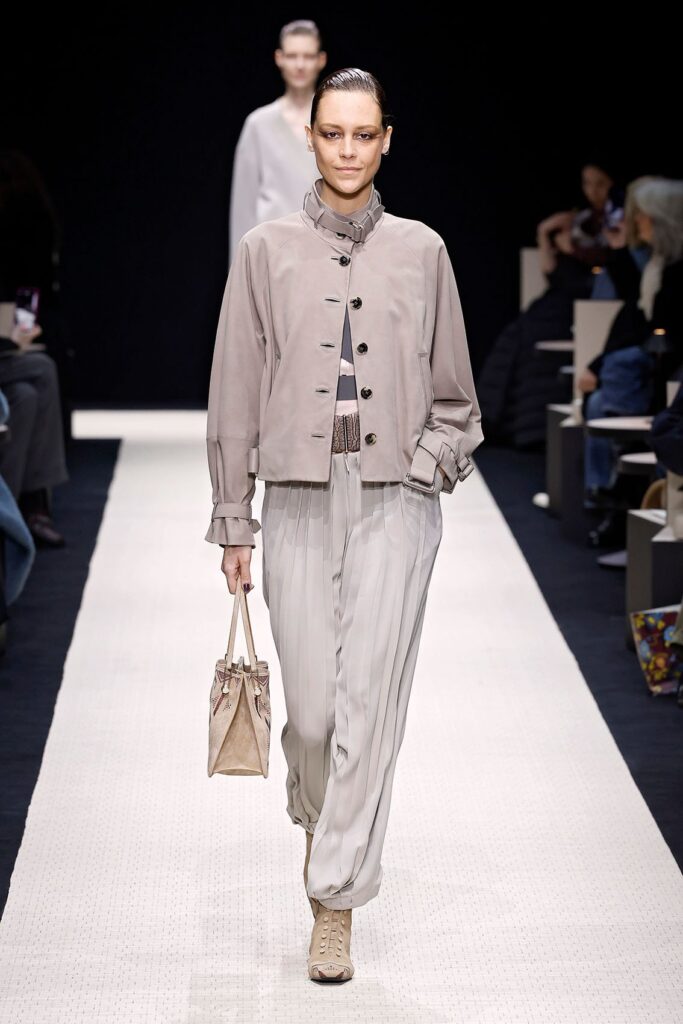
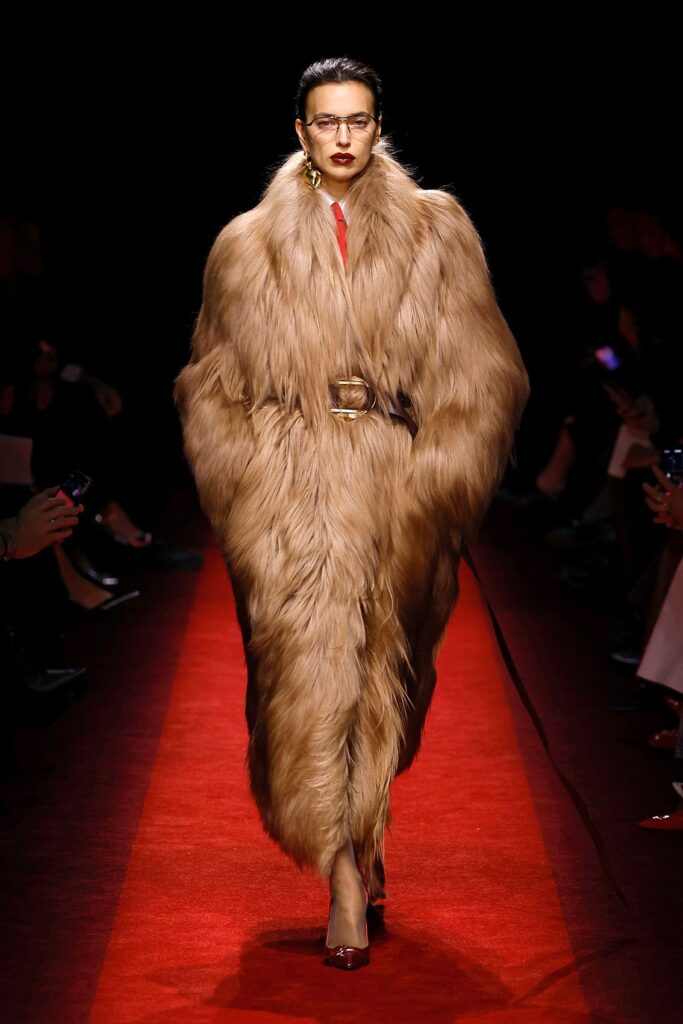
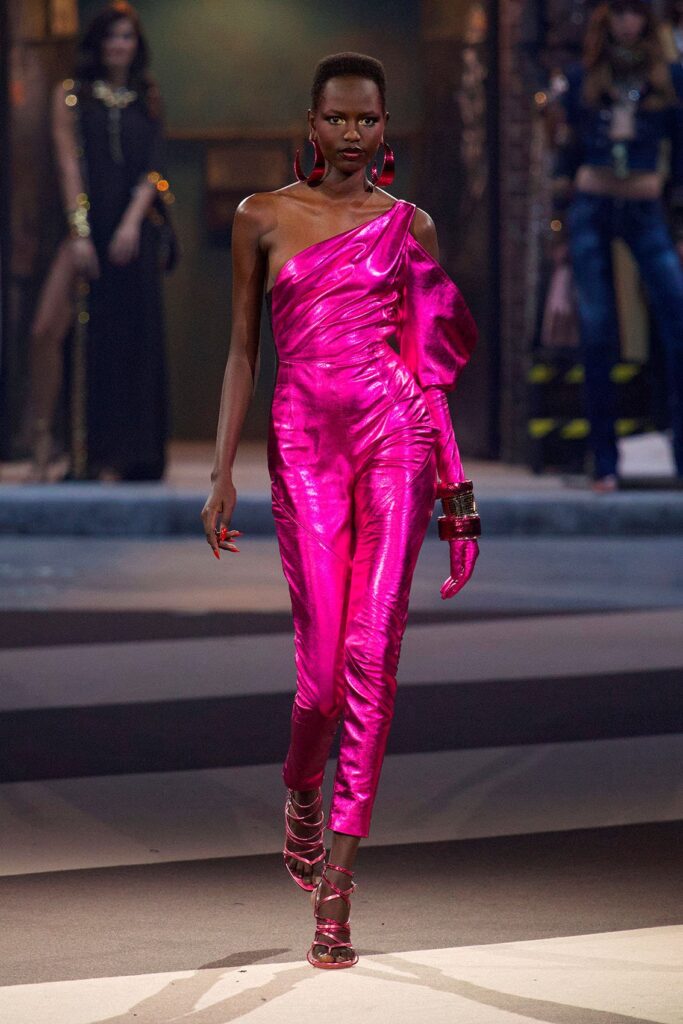
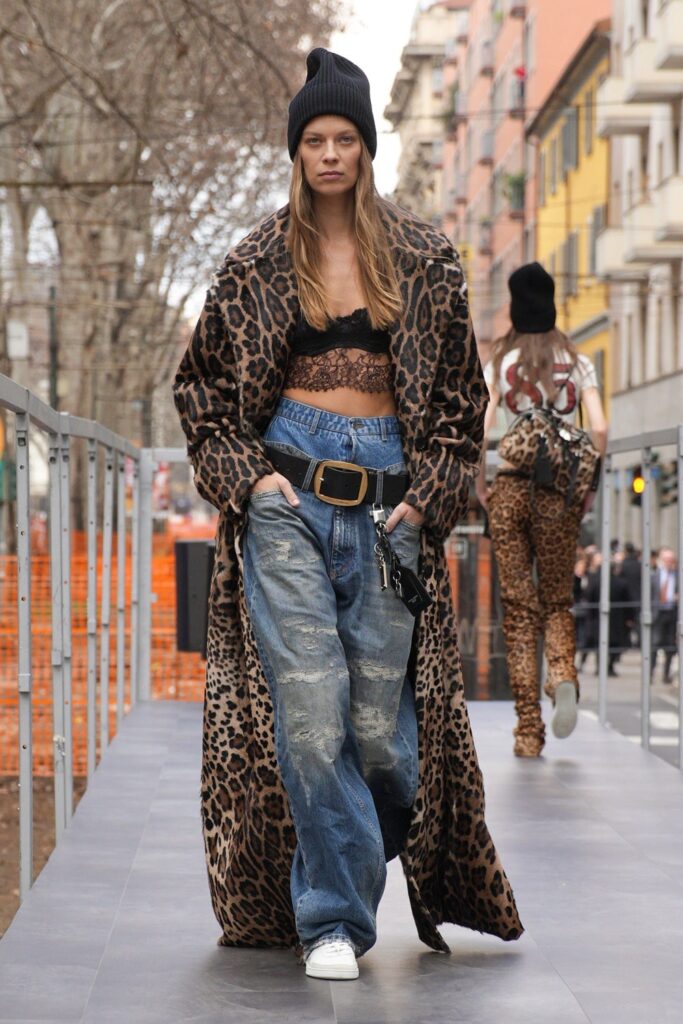
Throughout the week, sophistication was defined by effortless looks. Brands such as Giorgio Armani, Luisa Spagnoli, and Tod’s mastered the art of not trying too hard, presenting minimalist, comfortable clothing. The key to achieving this effortlessly cool look, according to Italians, lies in luxurious fabrics that provide graceful movement and relaxed constructions. Italian glamour was showcased through big, dramatic faux fur coats in all their iterations. Brands such as Ferrari, Fendi, Jil Sander, MSGM, and Giuseppe Di Morabito presented their take on this timeless statement piece, nodding to an old-school glamour aesthetic.
Milan Fashion Week proved to be a showcase of diverse talent, where historical brands merged with the contemporary edge of emerging designers, sparking compelling conversations around heritage, timeless design, modernity, and innovation.